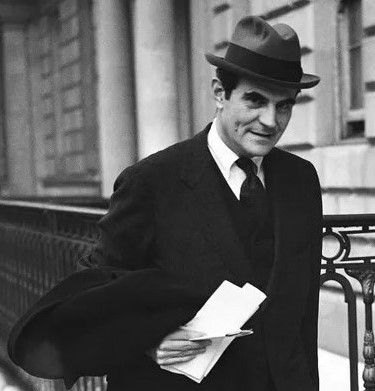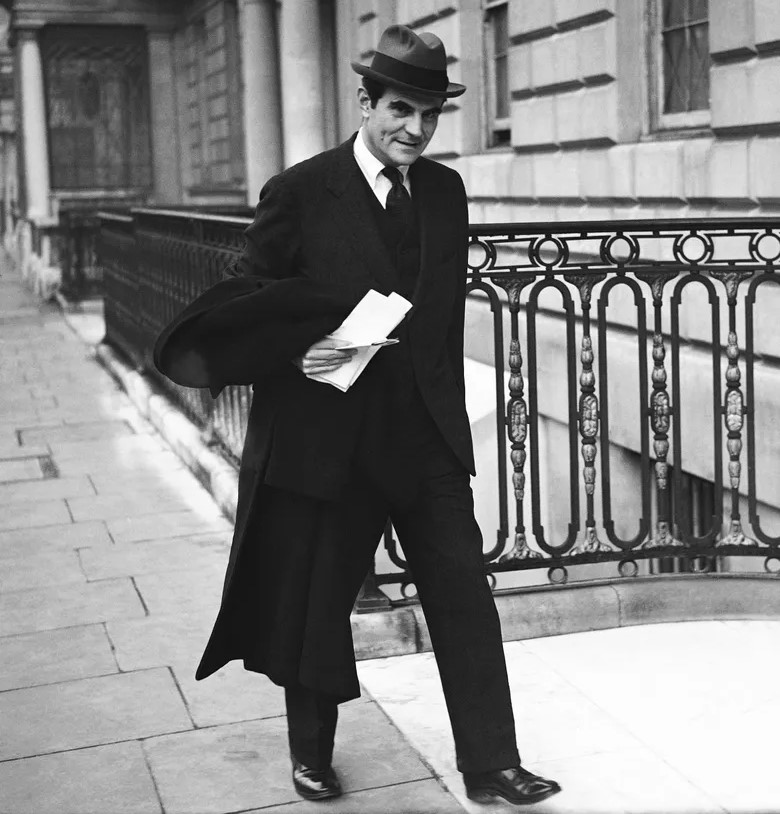
I first heard about John Gilbert Winant several years ago in Concord, New Hampshire, while I was teaching a class on ethics. My co-captain, Professor Stephen Ambra, spoke admiringly of the three-term Republican governor of the state. However, the most compelling part of Winant’s story unfolded during his time abroad, serving as the U.S. Ambassador to England.
In 1941, Democrat Franklin Roosevelt tapped the Republican for the post because of his strong leadership and diplomatic skills. Winant had earned the president’s trust and respect during his time as head of the Social Security Board. The president believed his personal qualities and integrity would help build a closer, more trusting bond with Winston Churchill and other British leaders. The decision turned out to be one of Roosevelt’s finest.
But it was Winant’s extraordinary ability to communicate with diverse audiences that made a critical difference. Whether addressing political leaders in London or coal miners in the British countryside, Winant had a special gift for making every person feel seen and heard.
At the end of a speech he gave in London on America’s Independence Day in 1941, Winant articulated the shared values of democracy and the importance of unity in the face of a common enemy.
“A flag is but a bit of bunting to one who insists on prose, and yet may be a symbol of faith and reality. The Stars and Stripes is the symbol of faith of our fathers and a reality realized by ourselves because of their sacrifice . . . within its generous folds, it symbolizes a universal ideal that lives within our land and beyond our frontiers, an ideal that reaches out to all humankind.”
Decades earlier, Winant taught at St. Paul’s School in Concord, New Hampshire, one of the oldest and most renowned secondary schools in the United States. One can only imagine what kind of passion and idealism he inspired in his students. In an address before the Union of Lancashire and Cheshire Institutes in England, Winant closed with these words:
“Next to life and liberty, we consider education the greatest blessing bestowed upon mankind.”
It’s hard to find a speech by Winant that doesn’t draw you in with its eloquence, passion, and call for unity—a theme he regularly emphasized throughout his career. In a 1944 Thanksgiving speech, Winant rose to the occasion, even when sharing the stage with Churchill. His closing remarks serve as a powerful rallying cry that resonates deeply with our needs for moral leadership today.
“Our greatest harvest has been the willing hands and the brave hearts that have carried forward an abiding faith in freedom and the promise of an enduring peace. When the strife is over, and the battle is done, grant us brotherhood, not for this day only but for the years to come; hope without despair; faith in humankind; and understanding hammered out in these war years that will unite nations for all times.”
After the death of Roosevelt, Harry Truman appointed Winant to the U.N. Economic and Social Council. Worn down by the devastation he witnessed in England, and battling depression, he resigned in May 1946 and returned to his home in Concord, New Hampshire. Disillusioned by the Cold War, he withdrew from public life. His tragic suicide in 1947 underscores the deep personal cost of leadership.
However, Winant’s greatest legacy may lie in his words, which inspire us to see the better future he believed in, even in the face of democracy’s darkest hour.
A statue of John Gilbert Winant stands outside the New Hampshire State House in Concord, honoring his contributions as a governor, U.S. Ambassador to the United Kingdom, and advocate for empathy, unity and democracy.
Comments
Leave a Comment












John Gilbert Winant OM (1889-1947) was an extraordinary person – having lived through the crucible that was World War II Britain as the United States Ambassador to the Court of St. James – whose words, not platitudes, reach across time from the destruction of war to our own. His words, spoken and written over 80 years ago, are enduring, prescient, and relevant – transcending the times in which he lived to speak to us today about essential values: we only have to listen.
To me, his words and writings about empathy, unity, and democracy are for all ages – spoken and written not by a politician but a statesman, educator, and humanitarian. Often compared with Lincoln, Winant was one of the great Americans of the first half of the 20th century: read Lynne Olson’s book, “Citizens of London” (2011).
John Gilbert Winant was only the second American (Dwight D. Eisenhower was the other) to deservedly receive in 1947 from George VI, honorarily, the Order of Merit.